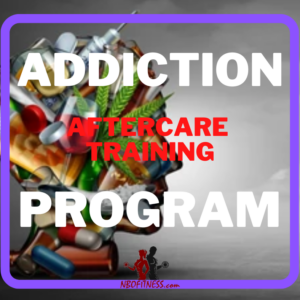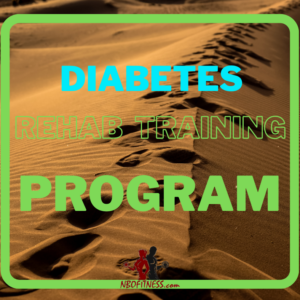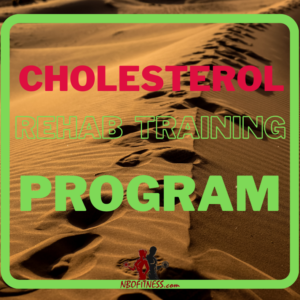
Food poisoning can have a significant impact on exercise and performance, from immediate symptoms like dehydration and energy loss to longer-term effects like muscle catabolism and loss of training time. Understanding these impacts and taking appropriate recovery measures can help individuals return to their fitness routines safely.
Reviewed by Evans Mwaniki, PT
Food poisoning is an acute illness resulting from the ingestion of contaminated food or beverages, leading to symptoms such as nausea, vomiting, diarrhea, abdominal pain, and sometimes fever. For athletes and fitness enthusiasts, food poisoning can be a major setback, not only affecting their overall well-being but also their exercise routines and performance levels. This article delves into the specific ways food poisoning impacts exercise and performance, offering practical advice on recovery and prevention.
Understanding Food Poisoning
Food poisoning occurs when harmful bacteria, viruses, parasites, or toxins contaminate food. Common culprits include Salmonella, E. coli, Norovirus, and Listeria. These pathogens can cause a range of symptoms, typically appearing within hours to days after consumption.
The severity of food poisoning can vary, from mild discomfort to severe dehydration and electrolyte imbalance. The body’s response to these pathogens can significantly impact an individual’s ability to exercise and maintain performance levels.
The Immediate Impact on Exercise
- Dehydration and Electrolyte Imbalance: One of the most immediate effects of food poisoning is dehydration, primarily due to vomiting and diarrhea. The loss of fluids can lead to an electrolyte imbalance, affecting muscle function and leading to symptoms like muscle cramps, weakness, and fatigue.
- Reduced Energy Levels: Food poisoning can lead to a significant drop in energy levels. The body expends energy fighting off the infection, leaving less available for physical activity. Additionally, a lack of appetite and reduced food intake can decrease glycogen stores, essential for sustained exercise.
- Gastrointestinal Distress: Symptoms such as nausea, vomiting, and abdominal pain can make physical activity uncomfortable or even impossible. Engaging in exercise while experiencing these symptoms can exacerbate discomfort and prolong recovery.
- Impaired Muscle Function: Electrolytes such as sodium, potassium, and calcium are crucial for muscle contraction and function. An imbalance caused by fluid loss can impair muscle function, leading to decreased strength and endurance.
The Long-Term Impact on Performance
- Muscle Catabolism: Prolonged illness and reduced food intake can lead to muscle catabolism, where the body breaks down muscle tissue for energy. This can result in a loss of muscle mass and strength, negatively affecting overall athletic performance.
- Loss of Training Time: Recovery from food poisoning often requires rest and a temporary cessation of exercise. This loss of training time can disrupt progress, particularly for athletes in training for a competition or event.
- Mental Health and Motivation: The physical symptoms of food poisoning, combined with the frustration of missing workouts, can take a toll on mental health. Decreased motivation and increased anxiety about losing fitness gains can affect an individual’s approach to exercise and training.
Recovery and Returning to Exercise
- Gradual Return: It’s essential to allow the body time to recover fully before resuming exercise. Start with light activities like walking or gentle stretching, gradually increasing intensity as symptoms subside and energy levels return.
- Hydration and Nutrition: Rehydration is critical. Drinking water, electrolyte solutions, or broths can help restore fluid and electrolyte balance. Gradually reintroduce easily digestible foods, such as bananas, rice, applesauce, and toast (the BRAT diet), before returning to a regular diet.
- Listen to Your Body: Pay close attention to how your body feels. If symptoms like fatigue, dizziness, or gastrointestinal discomfort persist, it’s crucial to rest and consult a healthcare provider.
Prevention Strategies
- Food Safety Practices: Preventing food poisoning is the best approach. This includes proper handwashing, cooking foods to safe temperatures, avoiding cross-contamination, and storing food appropriately.
- Awareness of Risky Foods: Certain foods, like raw or undercooked meats, eggs, unpasteurized dairy products, and improperly washed fruits and vegetables, pose a higher risk of contamination. Be mindful of these risks, especially when traveling or dining out.
- Stay Informed: Keep abreast of food recalls and health advisories. Awareness of outbreaks can help you avoid contaminated products.
Conclusion
Food poisoning can have a significant impact on exercise and performance, from immediate symptoms like dehydration and energy loss to longer-term effects like muscle catabolism and loss of training time. Understanding these impacts and taking appropriate recovery measures can help individuals return to their fitness routines safely. Practicing good food safety habits is essential in preventing foodborne illnesses and maintaining overall health and performance.
By being informed and proactive, athletes and fitness enthusiasts can minimize the risks associated with food poisoning and continue to achieve their performance goals.










